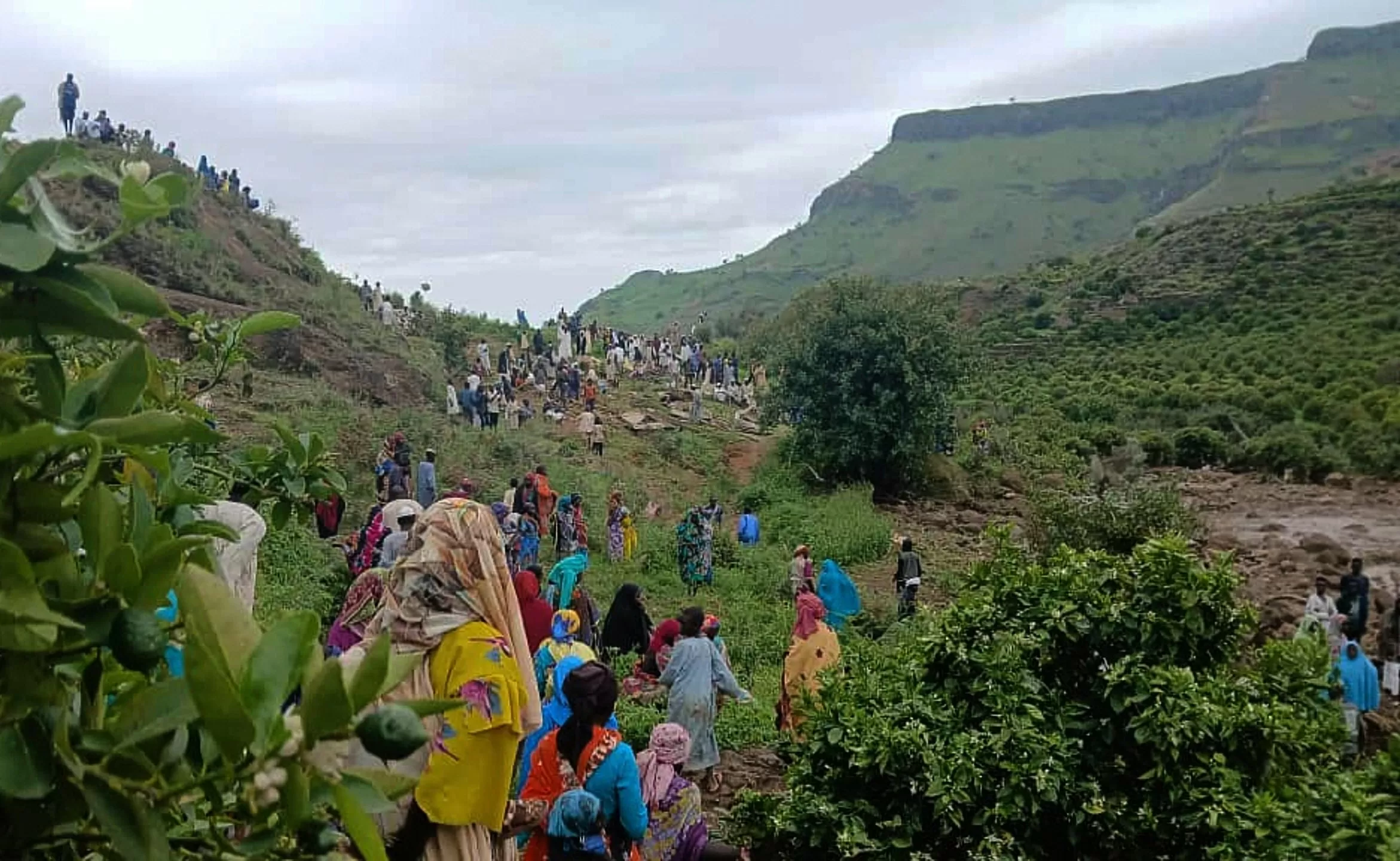On the fateful morning of the 29th of July, the village of Tarasin in Sudan’s western Darfur was struck by three devastating landslides. The destruction was swift and merciless, wiping out the entire village and nearby communities. Hundreds of lives were lost, and more than a thousand people were left homeless and displaced. The once-thriving community was reduced to rubble, with houses and livelihoods destroyed in an instant.
As the news of this tragic event spread, people around the world were left in shock and dismay. The loss of human lives is always heartbreaking, but what made this even more devastating was the fact that it could have been prevented. The landslides were a result of heavy rainfall in the area, which was compounded by deforestation and soil erosion caused by human activities.
The people of Tarasin were not strangers to the effects of climate change. For years, they had been facing extreme weather conditions, with prolonged periods of drought followed by sudden and heavy rainfall. This had taken a toll on their land, making it susceptible to landslides and other natural disasters. However, despite their efforts to mitigate the effects of climate change, they were not able to prevent this tragedy.
The aftermath of the landslides was a scene of chaos and despair. Families were torn apart, and survivors were left trying to make sense of the tragedy that had befallen them. The Sudanese government immediately launched rescue and relief efforts, with the support of neighboring countries and international organizations. Rescue teams worked tirelessly to find survivors and recover bodies buried under the rubble. Aid organizations provided food, water, and medical supplies to those in need.
But amidst this tragedy, there were also glimmers of hope and resilience. The people of Darfur, who had already endured years of conflict and hardship, came together to support each other. In the face of unimaginable loss, they showed incredible strength and courage. Communities opened up their homes to those who had lost everything, and everyone pitched in to help with the rescue and recovery efforts.
The international response to this disaster was also heartening. Nations around the world offered their support and condolences, and aid organizations mobilized resources to provide much-needed assistance. But this also served as a wake-up call for the global community to take urgent action against climate change. The landslides in Tarasin were not an isolated incident; they were a grim reminder of the devastating consequences of environmental degradation.
For the people of Darfur, this disaster was a harsh reality check, but it has also brought them closer together. They are determined to rebuild their lives, their homes, and their community. The government has promised to provide aid and support for the reconstruction of Tarasin, and steps are being taken to prevent similar disasters in the future. But this will require a collective effort from all, not just in Darfur but around the world.
Let us not forget the lives lost in Tarasin, and let their memory be a constant reminder of the urgency to take action against climate change. Let us also stand in solidarity with the people of Darfur as they rebuild their lives and their community. Together, we can create a better, safer, and more sustainable future for all. The people of Tarasin may have lost everything, but they have not lost their hope, and that is something that should inspire us all.





![Complete BritRail Pass Guide [Types, How to Use It, Pros + Cons]](https://inside-news.uk/wp-content/uploads/2025/06/00221EB4-BCA2-4DBB-6CD4-83DBC37D71FA-120x86.webp)
















